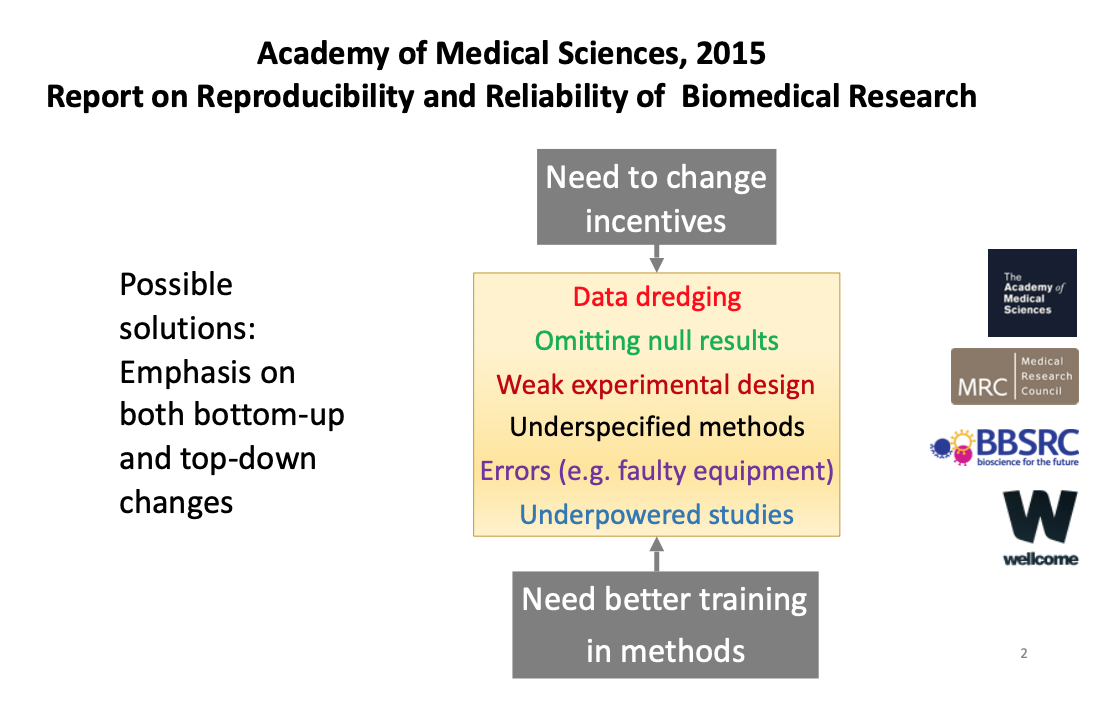It is my impression that most of the scientific misconduct cases are not the result of intentional fraud (with some exceptions) but self deception, poor education, indifferent handling of facts and wrong rewards.
Dorothy Bishop thinks that the role of cognitive biases in sustaining bad science is underestimated.
I shall argue, however, that to improve scientific practices we need to go deeper, to understand and counteract the mechanisms that maintain bad practices – not just at the institutional level, but in individual people…
Much has been written about how we might tackle the so-called “replication crisis”. There have been two lines of attack. First, there are those who emphasise the need for better training in experimental design and statistics. Second, it is recognised that we need a radical overhaul of the incentive structure of science.

Interesting slide #26 on p-hacking and the sequence of positive/negative studies when the sequence of ‘significant’ results is YNNNYNNNYN – my empirical example would be the pseudo association of mycobacterial infection and allergy. Interesting also her slide #31 on the canonization of false facts which looks like the reverse! association of vitamin D and allergy.